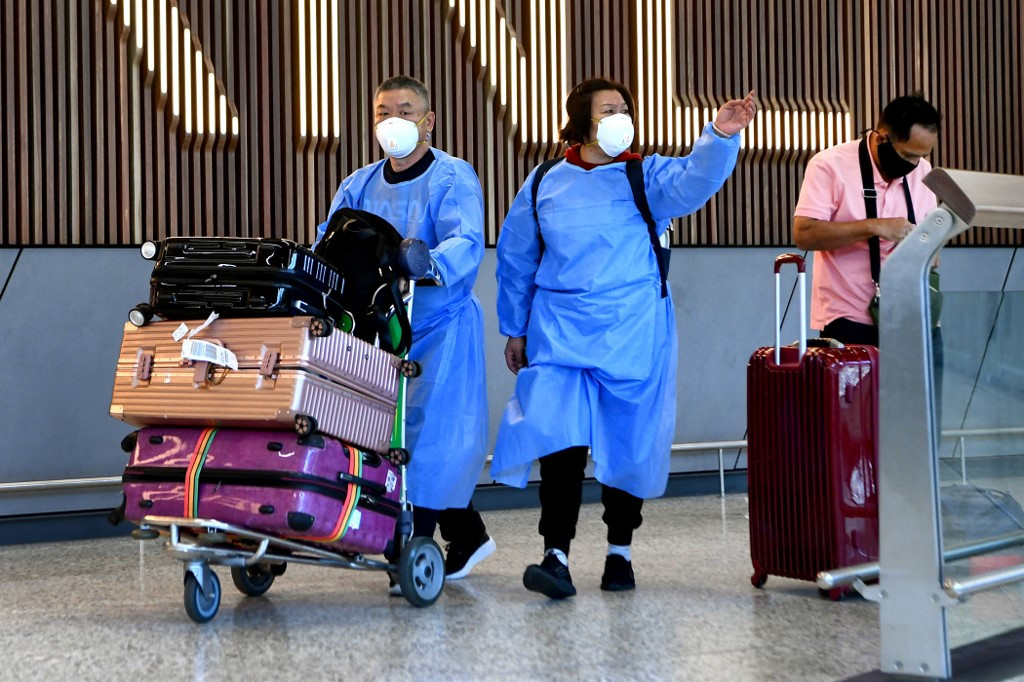Popular Reads
Top Results
Can't find what you're looking for?
View all search resultsPopular Reads
Top Results
Can't find what you're looking for?
View all search resultsBracing for Omicron
Four days after South Africa announced the discovery of Omicron on Wednesday, Indonesia joined several other countries in tightening their borders.
Change text size
Gift Premium Articles
to Anyone
T
he government’s decision to curb mobility around the year-end holiday could be the right step at the right time, especially when the new COVID-19 variant, Omicron, is sending shockwaves across the globe.
In its technical advice on Monday, the World Health Organization warned that the new strain posed a “very high” global risk. Just a few days before, the WHO declared Omicron a new variant of concern and would come up with detailed recommendations in the next few weeks.
We are not certain whether Omicron is more or less dangerous than the other COVID-19 variants that we have fought against, but the earlier we are prepared, the better. Certainly, this latest development should give a cause for caution, or all the progress we have made so far would be for nothing and we would have to start from scratch.
The government has learned a lot from past mistakes that have allowed COVID-19 to infect 4.26 million people and kill over 144,000 as of Monday; when, actually, we could have kept the numbers low.
The second wave of the outbreak in July proved that the consistent enforcement of health protocols — in addition to vaccinations — can protect us from the virus. Now that the Omicron threat is looming, the restriction of people's movements is a trump card the government wants to play.
Four days after South Africa announced the discovery of Omicron on Wednesday, Indonesia joined several other countries in tightening their borders. As of Monday, foreigners with a travel history in South Africa, Botswana, Namibia, Zimbabwe, Lesotho, Mozambique, Eswatini, Malawi, Angola, Zambia and Hong Kong within two weeks before departing to Indonesia are banned from entering the archipelago.
The government has also increased its mandatory quarantine period across the board from three or five days to up to seven days, regardless of whether the passengers had departed from countries without any trace of the Omicron variant.
Such restrictions come as other countries plan to open their borders in a bid to resuscitate their economies. Indonesia, too, had shown signs of reopening its economy — especially tourism — to a pre-pandemic scale. That is, until Omicron made headlines.
While we need more time to better understand the new strain, it’s better for the government to follow the WHO's suggestion to speed up vaccination. Over 50 percent of the country’s population has received the first jab and nearly 34.5 percent has been fully vaccinated. The government has also provided booster shots to health workers and will make them accessible to all early next year.
But the government should also listen to the advice of epidemiologists, who call for improvements in its COVID-19 surveillance, including through polymerase chain reaction (PCR) testing and whole-genome sequencing, a capacity the country is lacking. Genome sequencing is important to truly determine whether or not Omicron is already here so that the right measures can be determined to prevent the country from suffering a third wave.
Surely we have to seek every path to protect ourselves from a third wave, which may put our recovery plans on the line. But let’s never forget our basic line of defense: compliance with health protocols.











